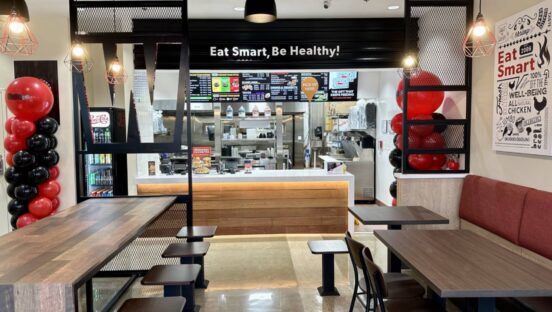Happy franchisees are vital to the success of any company, regardless of whether it’s a restaurant or a fashion retailer. Nevertheless industry insiders might be surprised to learn that overall, satisfaction among foodservice franchisees lags 5 to 10 percent behind other industries, according to Franchise Business Review (FBR).
Most recently, the research firm surveyed satisfaction among some 5,800 foodservice franchisees across 89 brands. The companies that took top marks, particularly those that consistently receive such honors, should serve as a blueprint for young companies hoping to lay a strong franchise foundation—and for businesses that might be struggling to build a positive culture among franchisees.
“There are brands on our list that have been on our list for as long as we’ve been doing it, and they seem to remain steady. We’ve seen other brands drop like a rock,” says Eric Stites, CEO of Francise Business Review. “Generally speaking, when a merger and acquisition of a brand happens, franchisee satisfaction tends to fall sharply.”
Stites adds that this decrease isn’t necessarily due to significant changes to the business model or new management; sometimes it’s just a matter of uncertainty. The unpredictability of the Great Recession also put a strain on franchisee satisfaction, although Stites is quick to note that brands with good relations in place fared best during that time. Many of those franchisors worked to alleviate the strain on their operators, whether it was through suspending royalties, boosting operational efficiency, or delaying store remodels.
While the franchisor will ultimately make decisions and guide the business forward, involving franchisees and soliciting their feedback in those decisions can make a tremendous difference. Stites says those considerations sometimes get lost in translation.
“Franchising is a unique animal, especially the last decade or so with so much private equity and outside investors getting involved,” Stites says. “Sometimes brands lose sight as to who they’re serving.”
The push for a quick return on investment can negatively affect franchisor-franchisee relations. The smart private equity firms understand franchising and how vital it is to serve those franchisees; Stites cites Roark Capital Group, whose portfolio includes quick-serve stars like Corner Bakery Café, Auntie Anne’s, and Carl’s Jr./Hardee’s, as a capable equity firm.
Franchisee satisfaction is also contingent upon what is promised at the outset.
“All satisfaction is delivering on the expectations that you set. When you set realistic expectations and you deliver on those realistic expectations, you’re going to have happy franchisees,” Stites says. “[Franchise] systems that are aggressively recruiting and advertising oftentimes paint a picture of their best-case scenario and not necessarily their most likely scenario.”
When franchisees come in with unrealistic expectations, they are bound to be disappointed. Even if the business is profitable and “successful” by standard metrics, it will cause friction between franchisor and franchisee, which Stites says can be very difficult to overcome.
A newly minted operator might be making double what she did at a previous job, but if the earnings fall far below what the franchisor purported, she may still have sour feelings.
Money isn’t a nonfactor, but it is far from the most important one in franchisee satisfaction. According to FBR, quick-service operators grossed the least amount of pre-tax income ($87,000)—quite far behind those in fast casual ($102,000) and full service ($151,000). Despite these numbers, the top four brands with the most satisfied franchisees were all quick serves: Culver’s, Kona Ice, Zaxby’s, and Captain D’s.
“Gross sales mean nothing to franchisee satisfaction. What really drives satisfaction is profitability,” Stites says. “We do see a direct link between profitability and franchisee satisfaction, but beyond that, it’s not just about money.”
The road to a system full of successful and satisfied franchisees is not without its challenges. For example, inviting franchisee opinions and feedback can initially slow down a brand when it makes changes or rolls out a new product—especially compared to corporate-owned companies that, by nature, can respond nimbly. Once franchisees are onboard, Stites says, the company can begin moving relatively quickly.
Businesses entering foodservice for the first time are often subjected to a steep learning curve. The most important piece of advice Stites would offer franchisors is to have corporate staff actually visit their franchised locations.
“Food is a tough industry. You’re talking about small margins; you’re talking about very complex operations,” he says. “Spend as much time as possible in operating units, and walk in the shoes of a franchisee.”
For more on franchisee satisfaction, check out QSR’s feature story with advice from five top franchisors.




